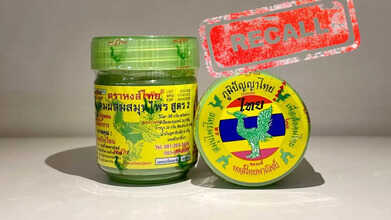- Health Conditions A-Z
- Health & Wellness
- Nutrition
- Fitness
- Health News
- Ayurveda
- Videos
- Medicine A-Z
- Parenting
- Web Stories
India’s First Indigenous Dengue Vaccine Coming Soon; What To Expect?

Dengue fever has been a public health crisis for decades, especially in tropical and subtropical regions, and India has been one of the worst-hit countries in recent years. With rising cases and fatal outbreaks, the country has required a reliable and inexpensive vaccine to prevent the spread of the disease. That changed with the launch of DengiAll, India's indigenous tetravalent dengue vaccine. After all these years of research, trials, and international collaboration, the vaccine is now in the last stage of testing, and a breakthrough seems at hand.
Developed by the Indian Council of Medical Research (ICMR) in collaboration with Panacea Biotech, DengiAll will be a game-changer for India's battle against dengue. The vaccine is currently in Phase 3 clinical trials, which are being conducted at 19 sites in 18 states and union territories with more than 10,335 healthy volunteers enrolled so far. The trials have shown promising results, with earlier phases (1 and 2) being successful for the vaccine to combat dengue across various strains.
The significance of the vaccine is not just its possibility in dengue prevention but also that it's an indigenous development, carefully crafted to fulfill India's needs. Balram Bhargava, former Director General of ICMR, who has played a key role in India's fight against COVID-19, ensured that India's first indigenous tetravalent dengue vaccine will be in the market by mid-2026—a landmark moment for India's health sector.
Dengue fever, transmitted by the Aedes aegypti mosquito, is one of the most common vector-borne diseases in India, especially prevalent during the monsoon season between May and September. The disease is characterized by fever, severe headache, joint pains, and sudden drop in platelet levels. It can, in severe cases, progress to dengue hemorrhagic fever (DHF) or dengue shock syndrome (DSS), which will prove fatal without urgent medical treatment. The World Health Organization (WHO) indicates that the worldwide incidence of dengue has grown eight times greater than two decades ago, thus emerging as a public health issue of major concern.
DengiAll is a tetravalent vaccine, and it has the goal of protecting against all four serotypes of the dengue virus (DENV-1, DENV-2, DENV-3, and DENV-4). This is a significant feature since dengue is a multi-serotype disease, and immunity to one serotype will not protect against others. In protecting against all four serotypes, the vaccine provides broad protection, which is extremely important in a country like India, where outbreaks are ever-present and in large part unpredictable.
The vaccine development is based on the TV003/TV005 strain, which was originally developed by the United States' National Institutes of Health (NIH). The strain was licensed to Panacea Biotech, a top Indian pharma company, and was adapted for domestic use. The company has achieved significant milestones in re-developing the vaccine to meet the specific needs of the Indian population, for whom it holds a process patent for development.
Highest Number of Cases Recorded In India
Approximately 188,401 cases were identified in 2017, with 325 deaths. Highest number of infections was reported from Tamil Nadu, followed by Kerala, Karnataka, then Punjab and West Bengal. In the 20th century, there was the significant rise in number of infections reported in 2003, 2010, 2012, and 2013, with an exponential increase beginning in 2015 onwards. During this time, repeated dengue outbreaks were reported in states of Andhra Pradesh, Goa, Delhi, Haryana, Karnataka, Gujarat, Kerala, Tamil Nadu, Punjab, and West Bengal. In 2017, dengue cases were to be the highest in India.
India, in particular, has experienced frequent outbreaks in West Bengal, Uttar Pradesh, Rajasthan, Bihar, Delhi, Kerala, and Tamil Nadu. The outbreaks have claimed thousands of lives and loaded the healthcare system with a great burden. Over 5 million cases of dengue have been reported to date as of 2023, with the Indian contribution playing a significant role in the surge. Since DengiAll is presently in its final stages of trials, the vaccine is set to reduce significantly the incidence of dengue and its complications in the country.
Why Dengue Cases Are On A Steady Rise?
Although India has been battling with dengue for years now, the illness has also been on the rise globally. The WHO states that the number of dengue cases reported globally has grown over twice in the past few years, with a total of 10.6 million cases having been reported thus far in the year 2024 alone. The growth is driven by various factors:
- Warm, humid temperatures offer ideal breeding grounds for mosquitoes.
- Overcrowded cities with poor waste management infrastructure facilitate the disease transmission.
- Increased international travel has led to dengue's expansion into non-endemic areas.
There is no cure for dengue known at the moment. It is treated with supportive care—hydration, management of fever, and close attention to platelet levels. If it is severe, hospitalization is required, and there are concerns regarding the burden this causes to the health system, especially in low-resource settings.
The presence of a dengue vaccine like DengiAll would be a welcome preventive. While a vaccine would not replace effective measures for mosquito control, it could be an extra tool in the public health arsenal, significantly reducing the number of severe cases and fatalities.
When Will Dengue Vaccine Hit the Market?
So far, DengiAll is in Phase 3 trials, and although it shows a great deal of promise, it should be kept in mind that the final approval phase could take time. If the ongoing trials continue to progress well, it is hoped that the vaccine would become available by mid-2026. This is a rough estimate, though, as it includes successful completion of the clinical trials and regulatory approvals.
Signs and Symptoms of Dengue Fever
Symptoms of dengue fever typically appear 4 to 10 days from the time of a bite from an infected mosquito and persist for 3 to 7 days. Asymptomatic cases are most common, but about 1 in 20 individuals will experience severe dengue when the initial symptoms start to resolve. Typical symptoms of dengue fever are:
- High fever
- Rash
- Severe pain behind the eyes
- Nausea and vomiting
- Muscle, bone, and joint pain
If you notice any of these symptoms, it is imperative that you receive medical care immediately, particularly if the symptoms are increasing.
How Does Vaccine Affects Dengue Treatment?
The DengiAll vaccine, India’s pioneering tetravalent dengue vaccine developed by Panacea Biotec, targets all four dengue serotypes, offering a preventive approach that could revolutionize dengue management. Dr. Divya Gopal, Consultant - Internal Medicine, Sir HN Reliance Foundation Hospital, Mumbai says, "Currently in Phase 3 trials with over 10,000 participants, it may reach markets by mid-2026 if successful. Unlike existing treatments, which focus on symptom management due to the absence of specific antivirals, DengiAll aims to reduce infection rates and disease severity, potentially lowering hospitalization and mortality, particularly during monsoon seasons. By shifting focus to prevention, DengiAll could ease the burden on healthcare systems and complement vector control efforts, significantly altering India’s dengue response strategy."
Morning-After Pill To Be Offered Free At 10,000 Pharmacies Across England: What You Should Know

Credits: Canva
The NHS has made the morning-after pill available for free in pharmacies across England, aiming to eliminate the “postcode lottery” that limited access to emergency contraception. Nearly 10,000 pharmacies can now provide the pill without charge, meaning women no longer need to visit a GP or book an appointment at a sexual health clinic to access it. Previously, some pharmacies charged up to £30 for the emergency pill.
Free Emergency Contraception Now Available at Pharmacies
Thousands of women in England can now access the morning-after pill for free from local pharmacies under the government’s NHS reforms, which are designed to make healthcare services more accessible without requiring GP appointments.
Research suggests that one in five women aged 18 to 35 will need emergency contraception each year. The pill can be taken up to five days after unprotected sex to prevent pregnancy.
Before this change, women had to buy the pill over the counter for as much as £30 or seek it free from GPs and sexual health clinics. However, both options often came with barriers such as appointment delays or reduced clinic availability due to funding cuts. With the pill being most effective when taken soon after unprotected sex, the NHS move has been welcomed by health advocates as a timely and practical step.
Where Can You Get the Free Morning-After Pill?
As reported by The Independent, around 10,000 pharmacies in England, including major chains like Boots and Superdrug, as well as independent outlets, are now offering the morning-after pill free of charge.
Claire Nevinson, Superintendent Pharmacist at Boots, said that pharmacists can also provide confidential advice on contraception choices. “Expanding the NHS Pharmacy Contraception Service to include access to emergency hormonal contraception is a significant step forward in helping women get timely healthcare,” she explained.
“Women can visit their local Boots pharmacy for free contraception advice, support, and medication—without needing a GP or clinic appointment.”
What Was the Situation Before This Change?
Until this rollout, women often had to make an appointment at a clinic or contact their GP to obtain emergency contraception, which sometimes led to delays, especially over weekends or in rural areas. Under the new plan, women of reproductive age can now walk into any participating pharmacy and speak directly with a trained pharmacist. Consultations are private, and the pill is dispensed immediately if appropriate.
This initiative adds to a growing list of NHS pharmacy services, which now include starting or continuing regular birth control, getting advice after beginning antidepressants, and receiving blood pressure checks and vaccinations. The goal is to make local pharmacies a convenient first stop for everyday healthcare needs.
A Step Toward Easier Access
The new scheme represents a broader effort to expand women’s healthcare access across the country. By making emergency contraception free and widely available, the NHS hopes to remove financial and logistical barriers that previously prevented timely use.
Disclaimer: This article is for informational purposes only and is not a substitute for professional medical advice or diagnosis. Always seek the guidance of your doctor or another qualified healthcare professional regarding any medical questions or concerns.
Prazosin Hydrochloride: FDA Recalls Blood Pressure Medication After Detecting Cancerous Substance

Credits: Canva
Blood pressure medication recall: More than half a million bottles of blood pressure medicine have been recalled due to the presence of a potential cancer-causing chemical, according to the U.S. Food and Drug Administration (FDA). Teva Pharmaceuticals USA, headquartered in Parsippany, New Jersey, issued a voluntary recall on October 7, 2025, for certain batches of prazosin hydrochloride capsules.
The FDA later classified the situation as a Class II risk on October 24, 2025, which means that use or exposure could cause temporary or medically reversible health issues, though the chance of serious harm is considered low.
Prazosin hydrochloride: FDA Recalls Blood Pressure Medicine
Teva Pharmaceuticals announced the voluntary recall after the FDA identified a potential impurity in some batches of prazosin hydrochloride. A Class II classification indicates that exposure to the affected medication could cause short-term or reversible health problems, but the likelihood of severe consequences is low.
Prazosin hydrochloride is an FDA-approved medication for treating high blood pressure, but it is also prescribed off-label to help people with post-traumatic stress disorder (PTSD) manage nightmares and sleep disturbances. The drug works by relaxing blood vessels, which helps lower blood pressure and improve blood flow.
Blood Pressure Medication Recall: What Chemical Impurity Caused the Blood Pressure Medication Recall?
The recall applies to three different dosage strengths that were distributed across the United States. The affected capsules were found to contain elevated levels of N-nitroso prazosin impurity, a nitrosamine compound that may increase the risk of cancer with prolonged exposure.
The FDA has stated that nitrosamine impurities like N-nitroso Prazosin impurity C can be harmful over time. However, because the recall falls under the Class II category, the potential for serious or long-term effects is low. In total, more than 580,000 bottles of prazosin hydrochloride are included in the recall. Patients currently taking the medicine for blood pressure or other conditions are advised to check their bottles, contact their pharmacist, and safely dispose of any affected medication.
Prazosin hydrochloride: Blood Pressure Recalled Products
According to USA Today, the recall involves the following:
- 1 mg capsules: 181,659 bottles (NDC 0093-4067-01 and 0093-4067-10), lot numbers 3010544A and 3010545A, with an expiry date of October 2025.
- 2 mg capsules: 291,512 bottles (NDC 0093-4068-01 and 0093-4068-10) across several lot numbers, expiring between October 2025 and July 2026.
- 5 mg capsules: 107,673 bottles (NDC 0093-4069-01, 0093-4069-52, and 0093-4069-05) across various lot numbers, with expiry dates extending into 2026.
Prazosin hydrochloride: What Should People Do With Recalled Medication?
Although neither Teva nor the FDA has issued specific instructions for patients, GoodRx advises those affected to verify their medication’s lot number, contact their pharmacist and prescribing doctor, and dispose of the recalled product safely.
Teva has started notifying customers by mail, and the recall process is ongoing. Patients with questions are encouraged to speak with their healthcare provider or pharmacist to confirm whether their prescription is part of the recall and discuss suitable alternatives if needed.
Hong Thai Herb Inhaler Recalled: Thai FDA Flags Popular Brand Over Contamination — All You Need To Know

Credits: Canva
Hong Thai Herb Inhaler Recalled: Sold at airport kiosks, roadside stalls, and trending online, Thailand’s go-to herbal inhaler, a popular everyday pick-me-up product has been pulled from the market after tests revealed unsafe microbial levels in certain batches. The recall follows a warning from Thailand’s Food and Drug Administration (FDA), which announced on Tuesday, October 28, that one batch of the product failed to meet microbial safety standards.
According to a three-page advisory, Batch ‘000332’ of the “Herbal Inhaler Formula 2” did not pass contamination checks. Thai Herbal Hong Thai Ltd., the company behind the inhaler, has recalled Lot 000332, about 200,000 units, after the FDA’s findings, as per The Independent.
Hong Thai Herb Inhaler Recalled
Thai Herbal Hong Thai, the maker of Hong Thai Herbal Inhaler Formula 2, has officially recalled Lot 000332 after Thailand’s FDA found microbial contamination that exceeded acceptable safety levels during routine testing. The affected batch includes 200,000 units.
Founder Mr. Teerapong Rabueathum explained that the contamination was limited to Lot 000332, which was produced on December 9, 2024, and set to expire on December 8, 2027. He clarified that all other batches remain safe for use and that reports of a full production or sales suspension were incorrect. The FDA notice, he said, only applies to the contaminated lot.
The company stated that microorganisms were found beyond the standard limits, though the FDA has yet to identify the bacterial strain or explain its specific health risks. Mr. Teerapong added that the company plans to meet with the FDA to review the test results and clarify technical details.
He mentioned that their in-house tests before the product’s registration had shown no issues. Hong Thai has begun recalling the affected batch from retailers, though only part of the stock could be retrieved since it was produced earlier.
What Is Hong Thai?
Known locally as yadom, these herbal inhalers are a staple across Thailand and other parts of Southeast Asia. They are small, portable tubes filled with essential oils, menthol, camphor, and eucalyptus, often used to relieve nasal congestion, dizziness, or motion sickness. Over time, these inhalers have become household essentials and tourist favourites.
Their popularity grew even further after global celebrities such as BLACKPINK’s Lisa, Hollywood actor Chris Hemsworth, and British rapper Central Cee were seen using them, helping the product gain traction among international audiences.
What To Do With Your Recalled Hong Thai?
Customers who have inhalers from the affected batch can return them to Hong Thai Panich, 434 Phutthamonthon Sai 2 Road, Bang Phai, Bang Khae, Bangkok 10160. Refunds can also be requested by contacting 02-803-1549, 081-252-3406, 092-740-5500, or 092-740-7700.
The company has said it has now upgraded its manufacturing process, adding new quality checks and ultraviolet (UV) sterilisation at multiple stages of production to ensure future batches meet safety and hygiene standards. “We sincerely apologise to our partners for the inconvenience and to our valued customers for any concern caused,” the company said in a statement. “We remain committed to maintaining your trust and thank you for your continued support.”
© 2024 Bennett, Coleman & Company Limited

